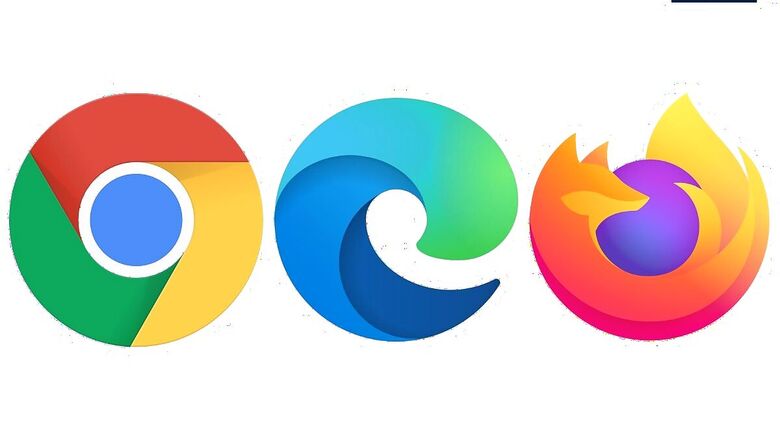
views
The web browser wars between Google and Microsoft have intensified significantly, off late. This is particularly true since Microsoft started pushing the new Edge browser to all Windows 10 and Windows 7 PCs as part of a Windows Update package, over the summer. In fact, the Microsoft Edge web browser, ever since it adopted Chromium as its foundation earlier this year, has been steadily gaining popularity. We had reported in early May that Edge was now nipping at the heels of Mozilla Firefox in the global market share, at least as far as the desktop and PC users are concerned. It has finally gone past Firefox, as far as the market share is concerned.
The latest numbers by Netmarketshare indicates that Microsoft Edge has settled into second place, albeit a distant second to the runaway leader Google Chrome. That means Mozilla Firefox drops down to third. Google Chrome rocks a global market share of 71.11% at the end of July, while Microsoft Edge now has 8.09% share of the browser ecosystem around the world. Mozilla’s Firefox clocks in with 7.36% share. Firefox had 7.58% share at the end of June.
Microsoft revamped the Edge web browser to use Chromium earlier this year from the EdgeHTML platform it used before, and is now available for Windows 10, Windows 7, macOS, Android, iOS and iPadOS platforms. While it has its advantages over Google Chrome, at least in terms of being less resource hungry, Edge most certainly got a big push over the summer as Microsoft is now pushing the Edge web browser via the automatic Windows Update route to PCs running Windows 10. Microsoft has been consistently adding new features to Edge and also improving its performance regularly to make it work better on older PCs as well.
This is a follow-through of the war of words that Mozilla and Microsoft have already engaged in, over web standards. In December 2018, when Microsoft announced that it would adopt Chromium for its next Edge browser evolution, Mozilla had accused Microsoft of giving up on the EdgeHTML standard and strengthening Google’s position.
“Google is a fierce competitor with highly talented employees and a monopolistic hold on unique assets. Google’s dominance across search, advertising, smartphones, and data capture creates a vastly tilted playing field that works against the rest of us,” said Mozilla's Chris Beard at the time. He eventually stepped down as CEO of Mozilla Corporation in September 2019. Subsequently, Microsoft fired back in a post which said, “It's time for Mozilla to get down from their philosophical ivory tower. The web is dominated by Chromium, if they really cared about the web they would be contributing instead of building a parallel universe that's used by less than 5 percent.”
There may have been some truth in what Mozilla had indicated at, back in 2018. Just a look at the data for the last three months shows Google Chrome’s share continues to rise as more people are adopting it as the standard browser on their PCs, smartphones and tablets. Chrome had 69.81% share in May this year, which increased to 70.19% in June and is now 71.11% as per the latest numbers at the end of July. Microsoft Edge’s growth, in the same period indicates shares of 7.86%, 8.07% and 8.09%--most certainly not as steep a rise as one would have expected now that the new Microsoft Edge browser is being updated on most Windows 10 PCs, if not all already.




















Comments
0 comment